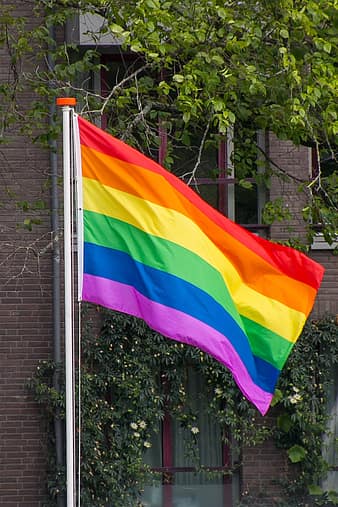LGBTQ Rights and the Upcoming Election
October 24, 2020
Recently, I’ve read many newspaper articles with titles such as “Marriage Equality at Risk.” They reference the upcoming election, as well as ongoing changes to the Supreme Court. Some groups, however, see concern surrounding this threat as alarmist. Indeed, Trump has sold himself as “the most pro-gay president in American history.” I believe the upcoming election raises many questions concerning LGBTQ rights.
I’d like to briefly contextualize some of the Trump administration’s stances on LGBTQ rights over the past 4 years. Throughout this article, I’ll be referencing an opinion piece originally published in The New York Times, entitled, “What’s at Stake for LGBTQ Families in the 2020 Election.”
From the beginning of Trump’s time in office, his policies have made his views abundantly clear, even as he has continued to promote himself as pro-gay. In October 2018, the Trump administration attempted to push an alternate definition of gender, one which would no longer federally recognize transgender citizens. In 2019, the administration implemented a ban that prevented transgender individuals from enrolling in the military. On the anniversary of the Pulse Nightclub shooting this year, healthcare protections were rolled back for trans people. This summer, Trump’s Department of Justice brought the question of discrimination in the workplace based on gender identity and sexual orientation to the Supreme Court. The court ruled in favor of banning discrimination, an important victory. However, the fact that this matter was even up for debate is alarming.
With the recent passing of justice Ruth Bader Ginsburg, this conversation shifts in character, resulting in an increase in the aforementioned slew of threatening headlines. In fact, two of the conservative Supreme Court justices (Alito and Thomas) have signaled that they are planning to accept legal challenges to marriage equality. The new justice nominee, Amy Coney Barrett, is a strict textualist and was recently revealed to have been a trustee at a school with clear anti-LGBTQ policies. In addition, it’s worth noting that Coney Barrett used the language “sexual preference” during her confirmation hearing, a term that has historically been used to assert that sexuality is a choice, thus supporting antigay policies and legislation.
Clearly, this is an important election concerning LGBTQ rights. However, as stressed by The New York Times article, one in five LGBTQ citizens isn’t registered to vote. If this election is so important, then why is this the case? Jennifer Finney Boylan, the author of the article, seemed to chalk this statistic up to pure apathy. She has a clear message: “Just vote! We can all band together and help each other! It’s just that simple!”
However, I argue that the problem is much more complex. Viewing LGBTQ voters as one uniform mass is wildly inaccurate, if not dangerous. Historically, media and television have presented a uniformly white affluent image of gay citizens. This model minority standard serves to make voters and media consumers of media feel progressive and accepting without challenging any of their prior-existing economic beliefs.
This model isn’t accurate. LGBTQ youth are significantly overrepresented in the homeless population, with some cities estimating the percentage of LGBTQ youth in their homeless population to be as large as 40% (compared to the number of LGBTQ people in the total population, estimated to be much lower). In addition to these clear socioeconomic disparities, not all LGBTQ voters are white. Refusing to acknowledge this ignores the unique challenges that these individuals face, and does not take into account historical attempts at preventing BIPOC from voting. The question of identity and living situation isn’t one that can be easily reduced to simple categorization, and it’s important to consider this when looking at voter turnout.
So, if you’re able to vote in this election and care about these issues, please vote, as not everyone has the ability to do so. Although our current system requires fundamental change requiring work far beyond this election, election results will have a tangible impact on people, not least including LGBTQ citizens.
Sources referenced:





